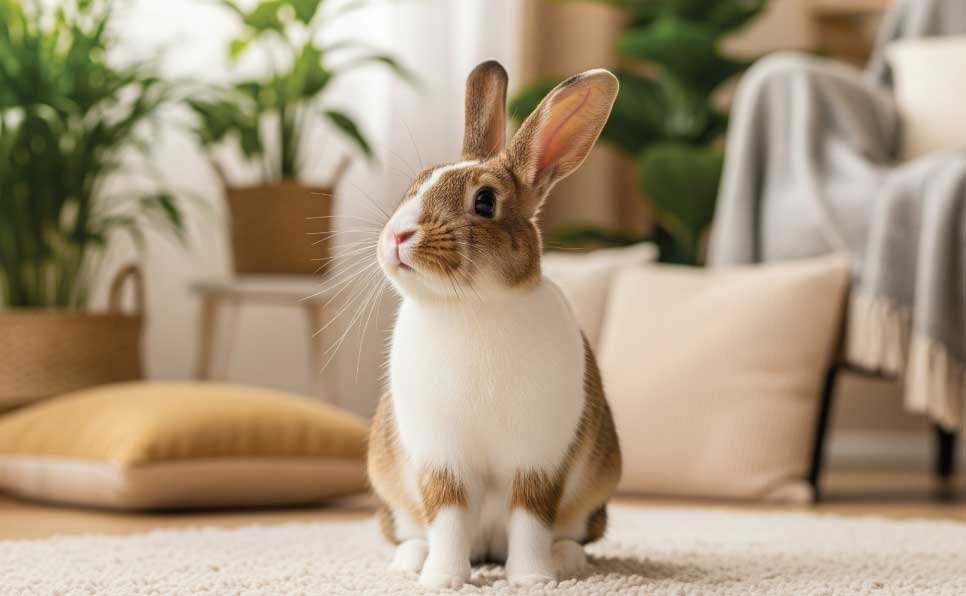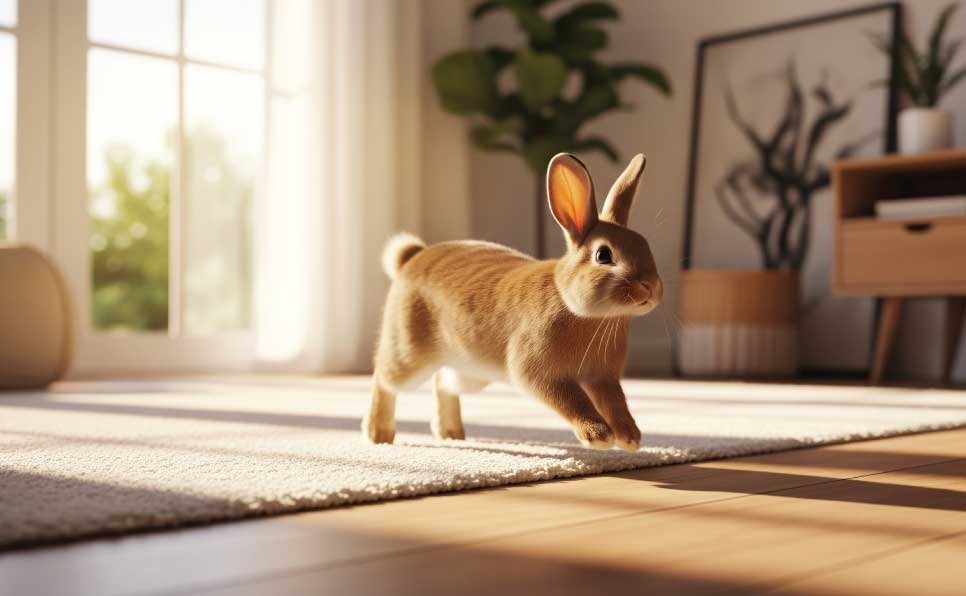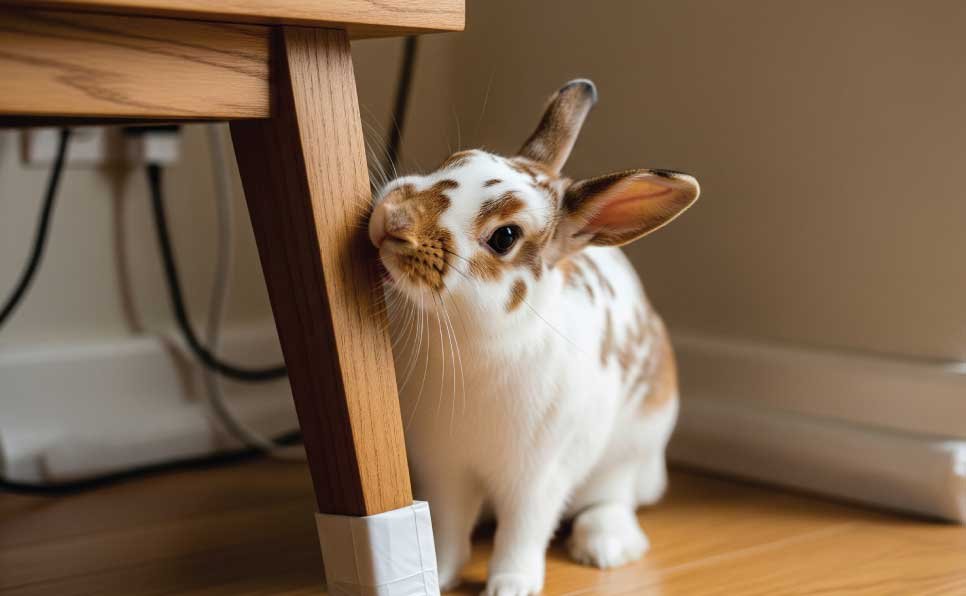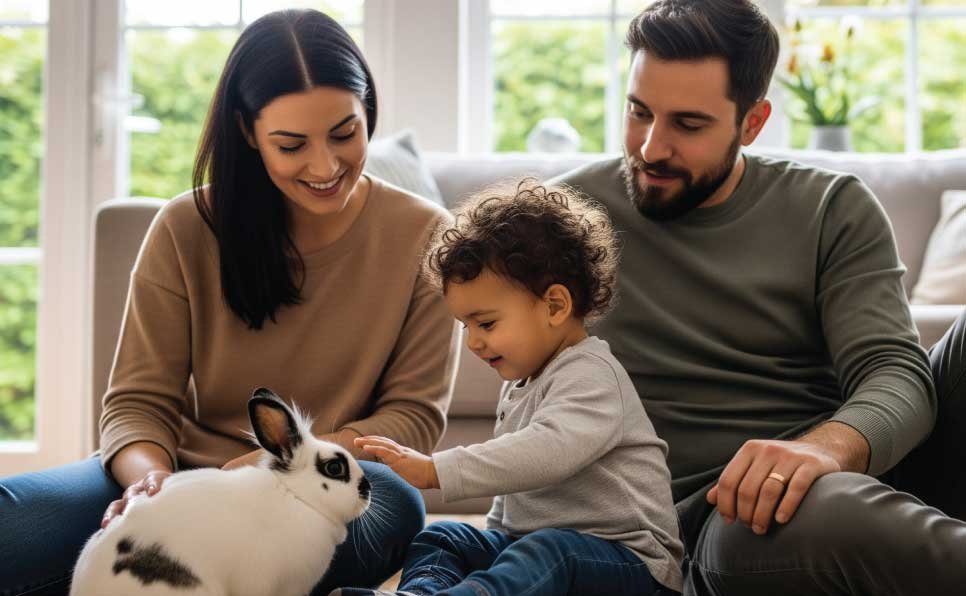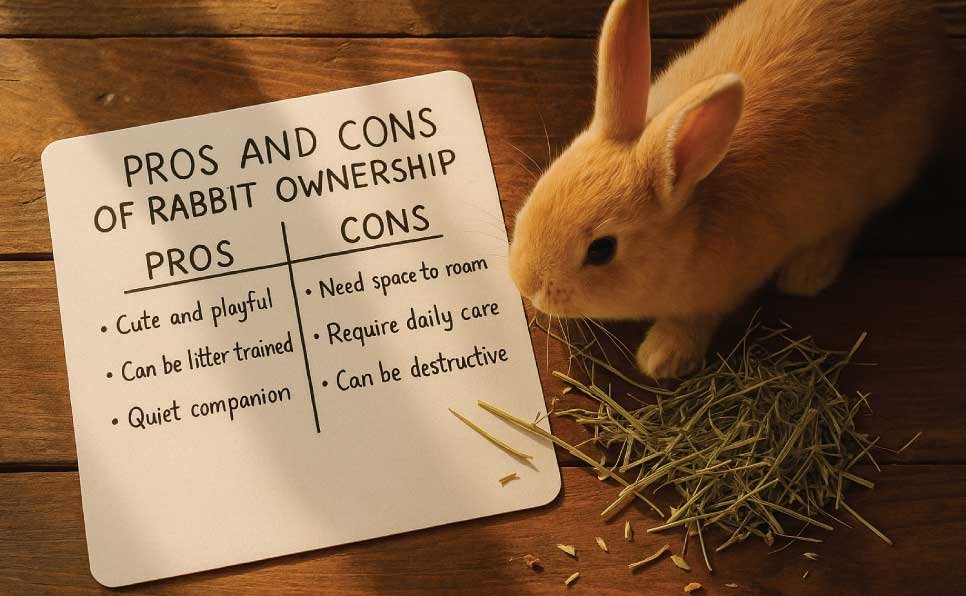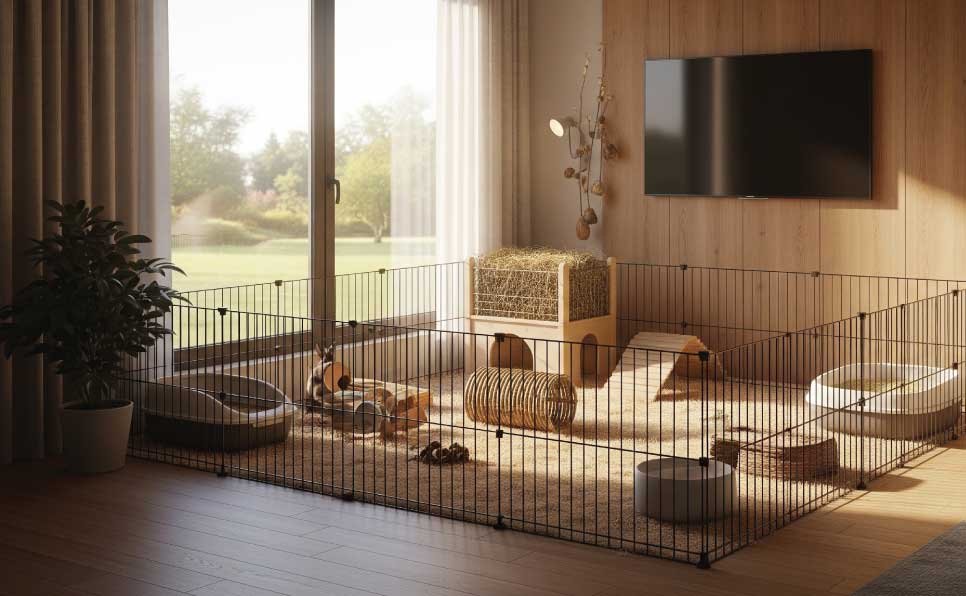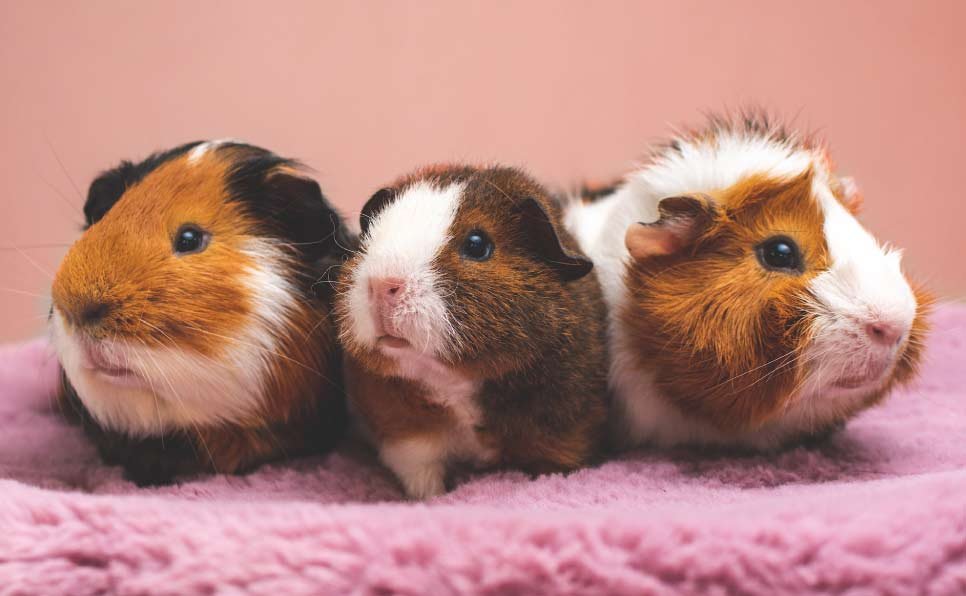Rabbits are adorable, fluffy, and full of personality, but are they the right companion for you? Before you fall in love with those twitchy noses and soft ears, it’s important to understand both the joys and the challenges of rabbit ownership. In this guide, I’ll walk you through the highs and lows of living with a bunny so you can make the best choice for your family. Let’s hop right in!
Listen to the Podcast: Pros and Cons of Having Rabbits as Pets
Introduction
Rabbits are some of the most endearing companions you can welcome into your life. With their twitchy noses, velvety ears, and gentle personalities, it’s no wonder they capture so many hearts. In fact, did you know that rabbits are often ranked as the third most popular pet, right behind dogs and cats? Their quiet charm and playful spirit make them a wonderful choice for many families, but there’s so much more to rabbit ownership than just their cuteness.
I learned this firsthand when I adopted a rabbit who belonged to a friend of mine. She loved him dearly, but due to a big life change, she could no longer care for him. I stepped in to help, thinking I’d foster him temporarily. What I didn’t expect was how quickly he would hop right into my heart and become a cherished part of my family. That experience opened my eyes to both the incredible rewards and the real responsibilities of living with a bunny.
In this guide, I’ll share the pros and cons of having rabbits as pets based on my own journey and the lessons I’ve learned along the way. You’ll discover:
- The wonderful qualities that make rabbits such special companions
- The challenges that come with caring for a bunny (so you can be prepared!)
- How to know if a rabbit is the right fit for your family, lifestyle, and space
- Practical tips to help first-time rabbit owners get started on the right foot
Whether you’re thinking of adopting a rabbit, fostering one in need, or simply curious about what it takes to care for these sweet small mammals, this guide is here to help you make a thoughtful, informed decision. Let’s hop right in and explore the world of rabbit companionship together!
The Pros of Having Rabbits as Pets
I’ll never forget the day I welcomed my first rabbit into my home. He wasn’t a planned addition to the family, he was actually my friend’s bunny. She had fallen on hard times and couldn’t give him the care he deserved. I offered to foster him “just for a little while.” (You probably know how that goes!) Before I knew it, I was head over heels for this little fluffball, and he became a permanent part of our household. That experience really opened my eyes to how wonderful it is to adopt or foster small mammals in need.
Rabbits have so many qualities that make them special companions. Let me share a few of the pros I discovered:
- Gentle and quiet companions
Rabbits are peaceful little souls. My bunny would quietly hop over and sit by my feet while I read or worked. Unlike dogs who bark or cats who sometimes knock things over at 3 a.m. (been there, done that!), rabbits are usually calm and quiet. That makes them perfect for apartments or shared living spaces. - Can be litter trained and free-roamed indoors
I was surprised at how quickly my bunny picked up litter training. Within a couple of weeks, he had his favorite corner and stuck to it. I let him roam around under supervision, and with a bit of bunny-proofing (more on that later!), he became a respectful little housemate. - Strong emotional bonds with their humans
I didn’t expect to feel such a connection, but rabbits are incredibly loving. He would come when I called his name and do a happy little hop (a “binky”) when I walked into the room. There’s nothing like earning the trust of a bunny, especially one who might have felt abandoned before. - Fun personalities and playful behaviors
Every rabbit has a unique personality. Mine was playful and curious, always investigating new tunnels I built out of cardboard. It was so much fun watching him explore and solve little “puzzles” I created to keep him entertained. And the zoomies? Pure joy! - Lower food costs compared to dogs or cats
Rabbits mostly eat hay, some fresh veggies, and a small amount of pellets. Compared to pricey pet foods for cats or dogs, I found his diet surprisingly affordable. Plus, I loved picking out fresh herbs and greens for him at the market, it felt like spoiling him a little.
Honestly, that rabbit taught me so much about compassion and responsibility. Adopting or fostering a small mammal can change your life, and theirs. If you’re thinking about a bunny, I encourage you to check local rescues or shelters. There are so many sweet souls out there looking for a loving home. 💛
The Cons of Having Rabbits as Pets
I’ll be honest , as much as I adore my bunny, there were definitely challenges I didn’t see coming at first. I think it’s important to share the full picture so you can be ready if you decide to welcome a rabbit into your life. Here’s what I learned the hard way (and sometimes with a few chewed-up wires along the way!).
Require Daily Care and Attention
When I first took in my friend’s rabbit, I imagined he’d be a bit like a cat , independent, easygoing, low maintenance. Nope! Rabbits need daily interaction, fresh food, water changes, litter cleaning, and some supervised playtime.
- Rabbits thrive on routine and notice if you skip steps.
- Cleaning litter boxes daily helps avoid odor and keeps them healthy.
- They need enrichment every single day or they’ll get bored fast.
There were mornings when I felt rushed, but seeing those eager eyes waiting for breakfast made it all worthwhile.
Fragile Health: Sensitive to Diet and Environment
I quickly discovered that rabbits are delicate creatures. One mistake with their diet, like too many sugary treats (I’m looking at you, carrots!) or the wrong type of bedding, can cause serious health issues.
- Their digestive system is sensitive , hay should be the main part of their diet.
- Sudden changes in diet or environment can cause GI stasis, a life-threatening condition.
- They’re prone to dental problems if their teeth aren’t worn down by chewing hay.
I remember panicking the first time my bunny refused food for a few hours. A rushed trip to the vet taught me the importance of watching for subtle signs of illness.
Can Be Destructive if Bored (Chewing Furniture, Wires)
I still smile (a little) when I think about the time I found my phone charger in two neat pieces on the floor. Bunnies love to chew , it’s natural, but it can cause headaches if you’re not prepared.
- They’ll chew furniture legs, baseboards, and especially anything with a cord.
- Bunny-proofing your home is essential , I learned to cover wires with tubing and block off tempting corners.
- Providing safe chew toys (like untreated wood or cardboard) helps direct that energy.
It’s not out of malice , it’s just how they explore the world!
Not Always a Good Match for Young Children
People often think rabbits make great pets for little kids because they’re small and cute. But in my experience, rabbits can get stressed by rough handling or loud environments.
- Rabbits generally don’t like being picked up , they feel vulnerable and can kick or scratch trying to escape.
- Fast movements and loud noises can frighten them.
- Teaching kids to respect a rabbit’s space is crucial if you have a young family.
I had to gently guide my niece on how to quietly sit and let the bunny come to her instead of chasing him.
Need Regular Vet Care From a Rabbit-Savvy Vet
This one surprised me: not all vets are experienced with rabbits! When my bunny needed care, I had to search for an exotics vet who truly understood rabbit health.
- Annual wellness checks are important to catch dental or digestive issues early.
- Rabbits may need vaccinations (depending on where you live) and routine nail trims.
- Exotic vet visits can be pricier than regular vet appointments.
It’s so worth it for your bunny’s wellbeing, but it’s good to plan for those costs.
Final Thought for This Section:
While rabbits are sweet, loving companions, they do come with challenges that shouldn’t be underestimated. I always say: go into rabbit ownership with eyes wide open. And if you’re adopting or fostering a bunny, you’re already showing the kind of big heart that can handle these responsibilities!
Are Rabbits a Good Fit for Your Family?
When I first took in my bunny, I thought, This will be easy , he’ll just hop around, eat veggies, and we’ll be best buds. Well, yes… but also no. Rabbits are wonderful, but it took some serious reflection to see how he fit into my family’s lifestyle. If you’re considering a bunny, here’s what I learned about making sure they’re the right match.
Considerations for Families With Children
I was so excited for my niece to meet our new fluffy friend. But what I quickly realized was that rabbits and small kids don’t always mix perfectly without guidance.
- Rabbits dislike being picked up , they can feel scared and squirm or scratch.
- Young kids may not understand a bunny’s need for quiet and gentle handling.
- Teaching children to sit calmly and let the rabbit approach is key to building trust.
Over time, my niece learned to respect his space, and now they’re the best of buddies , but it took patience!
Space and Housing Needs
I used to think, Oh, rabbits are small , they don’t need much room. I was wrong! Rabbits need space to stretch, hop, and explore.
- A large indoor enclosure or a bunny-safe room works best.
- They should have at least several hours a day outside of their pen to roam and exercise.
- Outdoor hutches aren’t ideal unless they’re super secure and predator-proof.
I ended up rearranging my living room just to give him a better “bunny zone” , no regrets!
Lifestyle Compatibility (Travel, Work Hours)
One thing I didn’t think through at first was how my schedule would affect my bunny. Rabbits need daily care and social time.
- If you travel a lot or have long work hours, a rabbit might feel lonely or neglected.
- They thrive on routine, so unpredictable schedules can stress them out.
- Consider whether you have someone who can check in on your bunny if you’re away.
When I had to leave town for a few days, I was grateful for a friend who understood rabbits and could help.
Long-Term Commitment: Rabbits Can Live 8-12 Years
This one really hit me , rabbits aren’t short-term pets. When you bring one home, you’re committing for a decade or more.
- Average lifespan is 8-12 years, sometimes longer with good care.
- Think about where you’ll be in 10 years , will you still have the time and space?
- Adoption is a promise to care for them for life.
For me, adopting my bunny wasn’t just about giving him a home today , it was about making sure he’d be loved for all his tomorrows too.
Final Thought for This Section:
Before you welcome a rabbit into your life, take a little time to reflect. Can you provide the space, attention, and long-term care they need? If the answer is yes , you’re in for one of the sweetest friendships imaginable.
Tips for First-Time Rabbit Owners
Looking back, I wish I’d had a guide like this when I first took in my bunny. I made plenty of rookie mistakes (hello, chewed lamp cord!) and learned a ton along the way. Here’s what I’d tell any first-time rabbit parent to help things go smoother from day one.
How to Set Up a Rabbit-Friendly Home
I started out with a basic cage, thinking that would be enough. But I quickly realized rabbits need way more space and enrichment.
- Choose a large pen or create a safe, enclosed area where they can hop and stretch.
- Cover or block off wires, baseboards, and anything chewable , trust me on this!
- Add hidey-houses, tunnels, and toys to keep your bunny engaged.
I ended up rearranging a whole corner of my living room just for my bunny’s “apartment” , and I loved watching him explore his little world.
What to Feed Your Bunny for Good Health
One of my biggest surprises? How important diet is for a rabbit’s health. My vet told me, “Hay isn’t just food , it’s medicine!”
- Unlimited fresh hay (like Timothy or orchard grass) should be their main food.
- Add a small amount of high-quality pellets daily.
- Offer fresh greens like romaine, parsley, or cilantro , but go slow with new foods.
- Avoid sugary treats (even too many carrots!) and human food.
I still remember the first time my bunny binkied after a fresh salad , pure joy!
The Importance of Bunny-Proofing
If there’s one thing rabbits are good at, it’s finding trouble. My bunny taught me that fast.
- Cover cords with split tubing or cord protectors.
- Block access to areas with furniture they might gnaw.
- Watch for small gaps , they’re amazing at squeezing into tight spaces!
After a chewed-up TV cable, I got serious about bunny-proofing. Life’s been a lot easier since.
Finding a Good Exotic Vet
This was something I didn’t think about until I needed it. Not all vets know rabbits well!
- Look for a vet experienced in rabbit care (often called an exotic vet).
- Schedule a wellness check soon after bringing your bunny home.
- Keep the vet’s number handy for emergencies (rabbits hide illness, so early care is crucial).
My exotic vet was a lifesaver when my bunny had a dental issue I wouldn’t have spotted on my own.
Final Thought for This Section:
Caring for a rabbit is a learning journey , but what a sweet one it is. With a little prep and a lot of love, you’ll set the stage for a happy, healthy life together. 💛 And if you’re opening your heart to adopt or foster a bunny in need? You’re already a hero in my book.
Pros and Cons of Having Rabbits as Pets. Frequently Asked Questions (FAQs)
Yes, spaying or neutering is highly recommended for rabbits. It helps prevent certain health issues (like uterine cancer in females), reduces aggressive or territorial behaviors, and can make litter training easier.
While some people house rabbits outdoors, it’s generally safer and healthier for them to live indoors. Outdoor rabbits are vulnerable to predators, extreme weather, and stress. If you do keep a rabbit outside, you’ll need a very secure, weatherproof hutch and to bring them inside during harsh conditions.
It depends on the individual animals. Some rabbits can live peacefully with gentle, calm dogs or cats, but introductions should be slow and supervised. Never leave a rabbit alone with a predator species unsupervised, even if they seem to get along.
Ideally, rabbits should have at least 3–4 hours of supervised free-roam or exercise time daily. The more space and freedom they have to move, the healthier and happier they’ll be.
Rabbits love toys they can chew, toss, or dig. Some easy favorites include untreated wood blocks, cardboard tunnels, seagrass mats, and paper towel rolls stuffed with hay. Regular enrichment helps prevent boredom and destructive chewing.
Yes! With patience and positive reinforcement (like offering a small treat or gentle petting), many rabbits can learn their name, come when called, and even do simple tricks like spinning or hopping onto a mat. It’s a fun way to bond and keep their minds active.
Conclusion
Bringing a rabbit into your life is a beautiful act of love , but it’s not one to take lightly. From my own experience, adopting my friend’s bunny changed me in ways I didn’t expect. I learned patience, how to tune in to another being’s needs, and how small daily acts of care build an incredible bond over time.
Rabbits bring so much joy: their quiet companionship, their playful little hops, the way they gently nudge your hand when they want attention. But they also ask for our commitment , to provide the space, the daily care, and the understanding they need to thrive.
If you’re thinking about welcoming a bunny into your home, I encourage you to consider adoption or fostering. There are so many wonderful rabbits in shelters or rescue groups just waiting for someone like you. When you open your heart to one of these sweet souls, you’re not just giving them a home , you’re gaining a friend who’ll bring unexpected joy to your days.
💛 Ready to take the next step? Share your thoughts, questions, or bunny stories in the comments! Let’s create a space where we can all learn and support each other on this wonderful journey of rabbit companionship.

